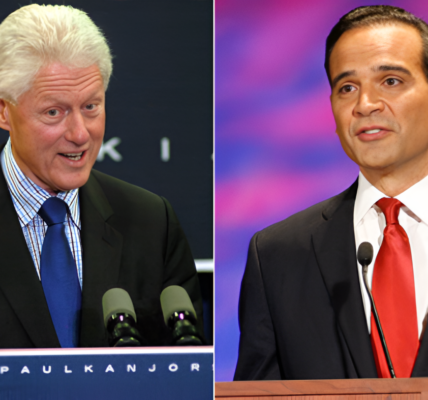
In a move that echoes political history, former President Donald Trump’s recent decision to oust Ronna McDaniel as chair of the Republican National Committee (RNC) raises significant concerns for the GOP. His choice to replace her with a more reliable loyalist mirrors the political purge executed by President Richard Nixon in 1969, when he replaced the highly respected Ray Bliss with his own political ally, Maryland Rep. Rogers Morton.
Though McDaniel’s loyalty to Trump and the MAGA movement was evident, her removal from the post marks a dangerous step toward eradicating the last vestiges of independence within the Republican Party. The parallels to Nixon’s decision to dismiss Bliss highlight the risks that come with prioritizing loyalty over institutional integrity.
Ray Bliss, who served as RNC chair from 1965 to 1969, was a strategic mastermind. His leadership helped rebuild the Republican Party after its disastrous performance in the 1964 election, leading efforts to modernize campaign tactics and increase GOP visibility in urban areas. Bliss was instrumental in the success of Nixon’s 1968 presidential campaign, using his expertise to shore up the party’s standing in critical regions. Bliss believed the GOP could make inroads with working-class and minority voters in cities—a strategy that was foundational in Nixon’s victory.
However, Nixon’s desire for control led to his decision to replace Bliss, signaling the first steps toward a more candidate-centric party structure. Nixon, who had suffered an embarrassing loss to John F. Kennedy in 1960, resented Bliss’s refusal to bend to his campaign’s financial requests. Bliss’s decision to withhold RNC support for Nixon’s personal political travel—such as his push for an RNC-funded airplane—was the breaking point.
Despite Bliss’s success in organizing the party and ensuring Nixon’s victory, the removal of Bliss marked the beginning of a shift away from strong, independent party leadership, and the rise of a more candidate-driven approach. Nixon’s move to install Morton, a loyalist, left the party without an impartial check on presidential ambitions, a development that would have long-lasting consequences for the GOP.
In 1972, Nixon won re-election, but the seeds for the party’s unraveling were sown with the rise of Watergate, a scandal that tarnished Nixon’s legacy. In 1974, Republicans suffered sweeping losses in the midterms, and Nixon was forced to resign. Some of Bliss’s allies argue that, had he remained as RNC chair, Watergate might have been averted, or at least mitigated. Bliss, with his keen political instincts, might have provided the checks and balances that Nixon lacked during his presidency.
Fast forward to today, and the parallels between Nixon and Trump are impossible to ignore. Just as Nixon sought to eliminate any checks on his power, Trump is doing the same by purging the RNC of independent figures who might challenge his hold on the party. The new leadership under Trump’s influence is expected to focus on one thing: electing Donald Trump as president once again. This approach puts party unity and the broader interests of Republican voters at risk.
Trump’s decision to install loyalists at the RNC isn’t just about a political power grab. It reflects a broader shift toward a party structure that is entirely subservient to a single candidate’s interests. Under Trump’s leadership, the RNC is likely to function more like a political machine focused on supporting his agenda, sidelining other Republican candidates, and potentially undermining the party’s prospects in future elections.
While Nixon’s purge of Bliss led to significant setbacks for the GOP, Trump’s grip on the RNC could have even more far-reaching consequences. With loyalists in control of the party infrastructure, there is little room for dissent or independent thinking. This could create a situation where the party is no longer able to effectively challenge its own leadership or put forward a diverse range of candidates who reflect the broad spectrum of conservative viewpoints.
One area where Bliss and Trump might have found common ground is on election security. Bliss was focused on “ballot security” during the 1968 campaign, ensuring that Republican observers were placed in key precincts to monitor for fraud. In this sense, Trump’s focus on alleged election fraud could resonate with the legacy of Bliss’s efforts, but it’s unlikely to stem the tide of centralization and control that Trump seeks.
Ultimately, the Republican Party must grapple with the fact that Trump’s takeover of the RNC may lead to a hollowed-out institution, driven solely by loyalty to one man, rather than a commitment to the party’s values and the broader interests of its voters. The GOP’s future viability depends on whether it can regain its sense of independence, restore internal checks, and resist the allure of unchecked power. If the party continues to place all its faith in Trump’s leadership, it risks repeating the mistakes of the past, leading to even more losses down the road.
The GOP’s history shows how easily a party can lose its way when it prioritizes loyalty over principle. It’s time for Republicans to decide whether they will allow Trump’s vision of a loyalist-driven RNC to be their future or whether they will seek a more inclusive, independent path forward





